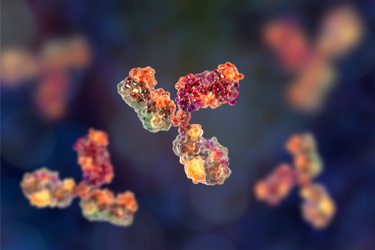Predictive Modeling Of Concentration-Dependent Viscosity Behavior Of Monoclonal Antibody Solutions Using Artificial Neural Networks
By Jonathan Schmitt, Abbas Razvi, and Christoph Grapentin

Solutions of monoclonal antibodies (mAbs) can show increased viscosity at high concentrations, which can be a disadvantage during protein purification, filling, and administration. The viscosity is determined by protein-protein-interactions, which are influenced by the antibody’s sequence as well as solution conditions, like pH, buffer type, or the presence of salts and other excipients. To predict viscosity, experimental parameters, like the diffusion interaction parameter (kD), or computational tools harnessing information derived from primary sequence, are often used, but a reliable predictive tool is still missing. We present a modeling approach employing artificial neural networks (ANNs) using experimental factors combined with simulation-derived parameters plus viscosity data from 27 highly concentrated (180 mg/ mL) mAbs. These ANNs can be used to predict if mAbs exhibit problematic viscosity at distinct concentrations or to model viscosity-concentration-curves.
Jonathan Schmitt, Abbas Razvi & Christoph Grapentin (2023) Predictive modeling of concentration-dependent viscosity behavior of monoclonal antibody solutions using artificial neural networks, mAbs, 15:1, 2169440, DOI: 10.1080/19420862.2023.2169440
Get unlimited access to:
Enter your credentials below to log in. Not yet a member of Bioprocess Online? Subscribe today.
